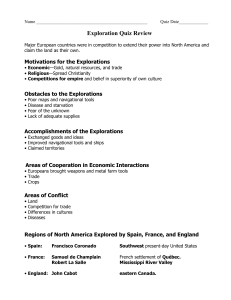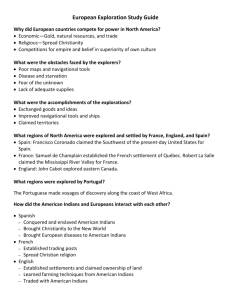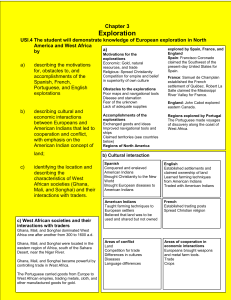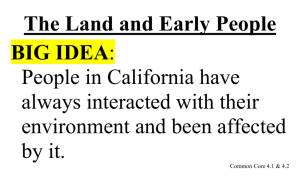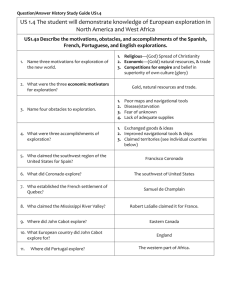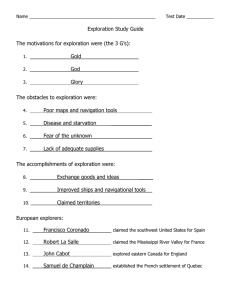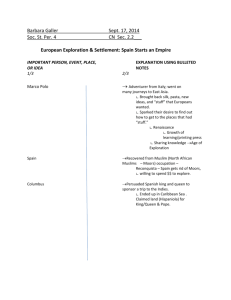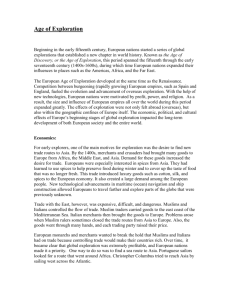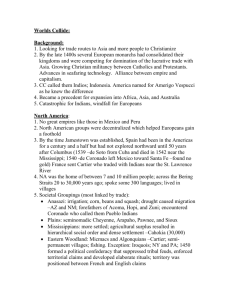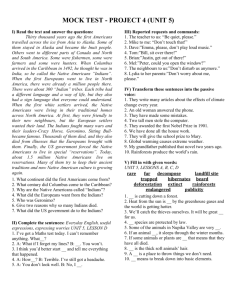Unit Study Guide
advertisement
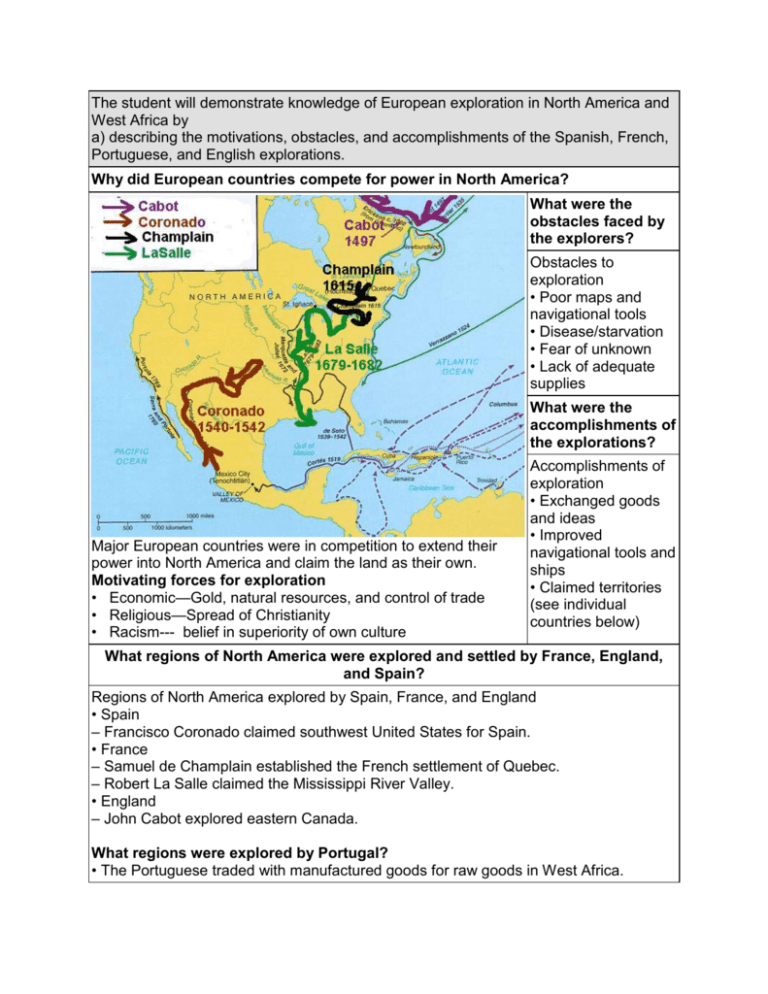
The student will demonstrate knowledge of European exploration in North America and West Africa by a) describing the motivations, obstacles, and accomplishments of the Spanish, French, Portuguese, and English explorations. Why did European countries compete for power in North America? What were the obstacles faced by the explorers? Obstacles to exploration • Poor maps and navigational tools • Disease/starvation • Fear of unknown • Lack of adequate supplies What were the accomplishments of the explorations? Major European countries were in competition to extend their power into North America and claim the land as their own. Motivating forces for exploration • Economic—Gold, natural resources, and control of trade • Religious—Spread of Christianity • Racism--- belief in superiority of own culture Accomplishments of exploration • Exchanged goods and ideas • Improved navigational tools and ships • Claimed territories (see individual countries below) What regions of North America were explored and settled by France, England, and Spain? Regions of North America explored by Spain, France, and England • Spain – Francisco Coronado claimed southwest United States for Spain. • France – Samuel de Champlain established the French settlement of Quebec. – Robert La Salle claimed the Mississippi River Valley. • England – John Cabot explored eastern Canada. What regions were explored by Portugal? • The Portuguese traded with manufactured goods for raw goods in West Africa. SOL US1.4b,c Interactions with American Indians Ghana, Mali and Songhai The student will demonstrate knowledge of European exploration in North America and West Africa by b) describing cultural interactions between Europeans and American Indians (First Americans) that led to cooperation and conflict. How did the American Indians and Europeans interact with each other? Cultural interaction • Spanish – Conquered and enslaved American Indians – Brought Christianity to the New World – Brought European diseases • French – Established trading posts – Spread Christian religion • English – Established settlements and claimed ownership of land – Learned farming techniques from American Indians – Traded The interactions between American Indians and Europeans sometimes led to cooperation and other times resulted in conflict. Areas of cooperation • Technologies (transportation of weapons and farm tools) • Trade • Crops Areas of conflict • Land • Competition for trade • Differences in cultures • Disease • Language difference
